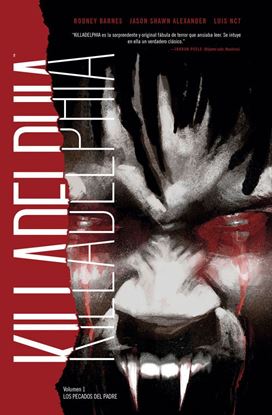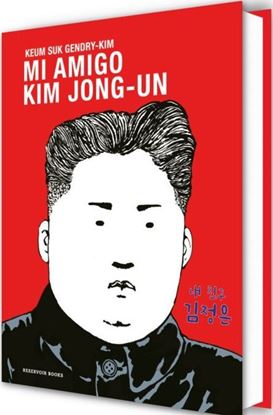

KILLADELPHIA 1. LOS PECADOS DEL PADRE
James Sangster Jr. vuelve a Philadelphia para acudir al entierro de su padre, recientemente asesinado. Una vez allí, el misterio del asesinato le conducirá a un mundo lleno de horrores que cambiará sus más profundas creencias. La ciudad que fue una vez símbolo de libertad y emancipación es ahora presa de la corrupción, la pobreza, el desempleo y… los vampiros.
Ahora, depende de Jimmy y de su más que inesperado compañero detener el plan del fallecido Presidente de los Estados Unidos John Adams: organizar un ejército de no-muertos para desatar una nueva y sangrienta revolución en los Estados Unidos.
Y es que hay muchas razones para nunca volver a casa. Bienvenido a Killadelphia.
1,800
MI AMIGO KIM JONG-UN
¿Cómo fue la infancia de Kim Jong-un?
¿Cuáles fueron sus deseos y pasiones?
¿Qué le hacía feliz?
La autora surcoreana Keum Suk Gendry-Kim vive desde hace años en la isla de Ganghwa, ubicada en la línea fronteriza con Corea del Norte. A pocos metros de su casa hay una base militar cuyas estruendosas prácticas le recuerdan que, aunque hace setenta años se firmó el armisticio que puso fin a la Guerra de Corea, las tensiones con los vecinos del norte no han terminado.
1,800
DIEGO DE SAAVEDRA FAJARDO
Desde su Murcia natal a Salamanca y de allí a Roma, Baviera y Münster, en calidad de plenipotenciario para preparar la conferencia de Westfalia, la vida de Diego Saavedra Fajardo transcurrió fuera de España y estuvo marcada por sus servicios a la Corona.
Clérigo desde su juventud, poeta y publicista del conde-duque de Olivares, como agente de Felipe IV se vio envuelto en dos grandes conflictos: uno incruento, que enfrentaba a la monarquía católica con el papa Urbano VIII, y otro destructivo, la Guerra de los Treinta Años, que asoló gran parte de Europa. En ambos se forjó como diplomático y aportó sus dotes de negociador, su percepción de la pluralidad de europea y sus ideas sobre la paz y la neutralidad.
Impregnado de cultura clásica y lector de Lipsio, dejó escritas obras notables como las Empresas políticas y piezas cortas (respuestas, diálogos, cartas) que lo consagraron como un maestro indiscutible de las «guerras de papel» que caracterizaron su tiempo.
Hombre del barroco y miembro de una generación, la de 1635, de fuertes personalidades, Saavedra Fajardo fue un pensador de calado cuya fama fue póstuma. Su vida estuvo llena de contrariedades y su discreción quizá fue tan solo un escudo, pero merece mucho la pena recordar la solidez de su legado, tanto en el plano intelectual como en el literario.
1,800











